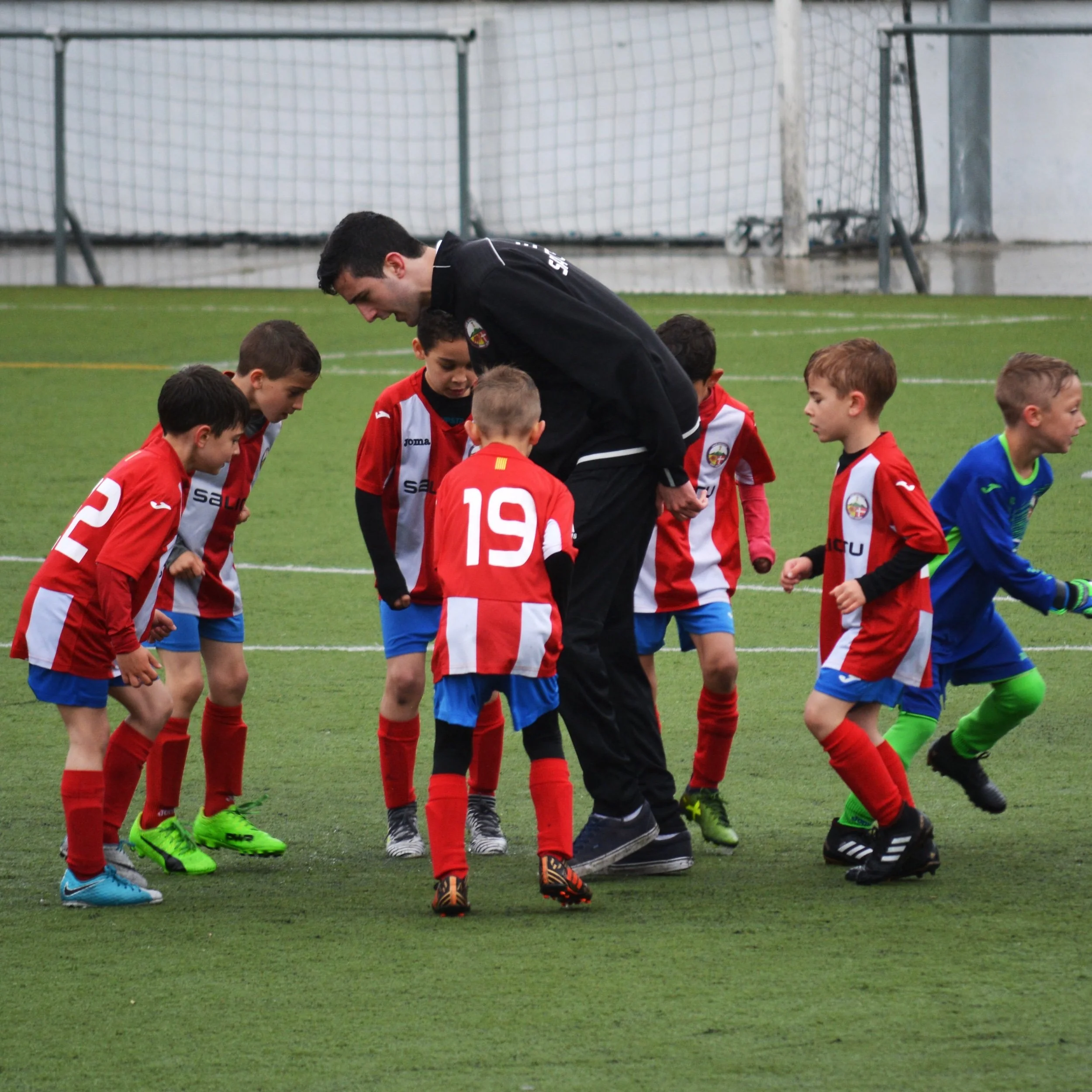I spent most of my career believing that the myriad of arms-length tactics that consume most fundraising plans (GivingTuesday, direct response, special events, etc. ) were the problem. Then I encountered a simple insight. One of the earliest scholars in the fundraising community, Paul Schervish, explained that it was important to distinguish between those efforts that lead people to become givers in the first place and those that lead some donors to make larger than average gifts or to increase their giving. The inability to make sense of such a distinction was the problem I didn’t see early in my career. Following Schervish’s logic, we encourage our clients to make sense of those efforts that most effectively yield their initial gifts and those that ensure the subsequent gift.
Read MoreIt’s pretty obvious that, rather than staring at our laptops, Tim and I would have preferred to have today’s podcast conversation on a back porch with some bourbon and a few cheap cigars. The two of us arranged this conversation to talk about NeonOne’s report that just released yesterday. However, it didn’t take either of us very long to climb up on our soapboxes. Nearly everything we ranted about today centered on the question of whether more should be expected of the those publishing reports about fundraising trends and donor behavior. Or, as Paulo Freire would say, is fundraising suffering from a serious case of narration sickness?
Read MoreI am always grateful to our guests on The Fundraising Talent Podcast because sometimes they help me make sense of some of the ideas that are rolling around in my head. I, like many of you, am trying to reconcile what’s happening on the other side of the planet with the challenges of everyday life at home. Today, I asked Debra whether the unfolding tragedy in Ukraine was an opportunity for fundraising to live up to its potential and whether there will be things that play out in the weeks and months ahead that we will need to understand on a more existential level.
Read MoreWhat happens when all our criticism of the donor backfires and, like a page from an Ayn Rand novel, all our philanthropists begin to disappear? What happens when the controls that we currently enjoy having at our finger tips start to work in the donors’ best interests instead? What immediately came to mind during my conversation today with Paul was discussions of VRM technology that would allow the donor to cut off access to their information with the flip of a switch. Paul wants us to consider the fact that some of the information asymmetry inside our CRM’s has the potential to backfire which could result in class-action lawsuits and hordes of donors insisting that their donations be returned. With so much bad behavior going on in the sector, Paul believes that such events are just a matter of time.
Read MoreWhat if what ails contemporary fundraising has less to with those who are in the fundraising seat and more do with the leadership style of those we’ve given the privilege of being the boss? Many of our recent conversations have shed light on how we are raising the expectations we have of our leaders. Today’s conversation with Kim Jennings suggests that some believe we could reduce the turnover and improve performance by expecting that the boss embrace a new approach to leadership. Kim wants to see fundraising leaders become much less authoritarian and metric-driven and, instead, see our work more holistically and reliant on coaching skills.
Read MoreThe pandemic has been a reminder that our world is not predictable; that most of what happens is beyond our control; and that, if you really want to accomplish your goals, the best you can do is remain self-aware and highly adaptable. For our team at Responsive, it’s been a challenging two years trying to keep a vision alive while managing the expectations of those who wanted to be a part of something new at one of the messiest times in human history. In today’s podcast conversation, I am pleased to introduce Mike Dixon, a long-time friend and now business partner, who genuinely believes in what we aim to achieve for the nonprofit sector and brings a number of strengths that I admittedly don’t have. Despite the myriad of challenges that we have encountered, Michael shares an appreciation for what has been accomplished in the last two years and looks forward to providing leadership to our consulting team in the years ahead.
Read MoreMy guest today on The Fundraising Talent Podcast is Kimberly, host of The Intersection Podcast and avid user of Clubhouse which is perhaps were we first met about eighteen months ago. Kimberly kicked us off with the idea that fundraising is long overdue for a reset. She believes that many of the underlying beliefs and assumptions that have gotten us to where we are today need to be surfaced and understood; and, as painful as it might be, we may have to let go of some of them. Kimberly and I agreed that much of this reckoning could happen with a simple overhaul of the fundraiser’s job description, a consistent theme in several recent conversations.
Read MoreWhat do you get when you put an academic who is all about the most effective fundraising methods between two rabble rousers who never shy away from giving their opinions. That was the lineup today on The Fundraising Talent Podcast with Dr. Russell James, author of The Socratic Fundraiser, and Greg Warner, founder of MarketSmart. The essence of our conversation was whether fundraisers both desire and know how to have genuine conversations with their donors and whether using the Socratic method is the ideal pathway to the meaningful opportunities that are available to our organizations. Today’s conversation reminds me of earlier conversations in which we’ve talked about how the sector has seemingly confused the advantages of being great story-tellers with those of being great story-listeners.
Read MoreToday I was privileged to connect with Laura Tepper, Executive Director of Development at the University of Pennsylvania, Carey Law School where she oversees all annual, major, and planned giving efforts. Her career spans all functions of frontline fundraising, including the recent Power of Penn’s Law campaign that raised $281M including two of the most significant gifts ever given to an American Law School. Today Laura and I talked about whether returning to the office post-pandemic is a reasonable expectation or if we should perhaps allow remote working to become the norm. This is an especially important conversation for Penn with its historic location in the heart of Philadelphia.
Read MoreHow many job descriptions will dramatically change in our post-pandemic world? This is the essence of the conversation I had with Brent, founder of Evertrue who, like myself, never shies from the opportunity to provoke a conversation about what might take our fundraising efforts to another level. During today’s conversation on The Fundraising Talent Podcast, Brent pointed out that we were all reminded very quickly that meaningful conversations with our donors don’t necessarily require a plane ticket and a stay at the Holiday Inn. This awakening among boards and bosses could arguably have the effect of redefining a lot of jobs for a lot of fundraisers.
Read MoreI could enjoy conversation with Guirlaine for hours, listening to how she describes her work and allowing her to provoke my thinking about how we can more effectively seize opportunities to a be real fundraisers. Today’s conversation was about Guirlaine’s article in Responsive’s winter edition of Carefully & Critically. Guirlaine wants more of us to learn how to stop being so focused on money, get it out of our way, and begin to experience fundraising as more meaningful work. She asks why fundraisers let money be the hero in their stories.
Read MoreWe started today’s conversation with Sam’s observation that the silver lining in the pandemic may be that it has given a lot of us an opportunity to sit back and really contemplate what it is we are doing. For the fundraising community, this has meant leaning into a number of difficult conversations that were much easier to overlook when we weren’t in the midst of a global pause. Sam and I meandered around the rest of his article and concluded with a statement he makes in the journal, “...we will need to bring the right people in to assist us in doing so; instilling in them a more robust and fearless attitude. We require fundraisers that are not reliant on the tired, tried-and-tested models that are simply not working in their current form; we need to embrace the change-makers, innovators and those of entrepreneurial spirit that are out there.”
Read MoreOne of the privileges of hosting The Fundraising Talent Podcast is the opportunity to develop meaningful friendships with individuals like Lisa Baxter who originally participated in a panel discussion here back in the early 2019. Now she’s back to talk to us about her featured article in the winter edition of Carefully and Critically. Today’s conversation was an no-holds barred one for both me and Lisa. I find it convicting to think that much of my experience was similar to a game of checkers while someone like Lisa has always found herself in a far more complex game of chess. I hope that conversations like this one will help others not to take for granted the ease with which they may have been able to navigate this work.
Read MoreWhat happens when a donor has a long history of giving, they have unimaginable wealth, and all the reasons in the world to support your cause, however something in your initial meeting suggests that they donor may have dementia. In these types of situations, Tony and Tara want fundraisers to do the right thing and get caught doing it. In what might become an increasingly common scenario, Tara and Tony want fundraisers to know how to honor the donor, meet expectations for their employers, and do so within an ethical framework.
Read MoreHow do those of us on the receiving side of charitable giving get bolder in what we ask and expect of those on the giving side of the relationship? Questions of this sort, originating from fundraisers all all stripes, convince me that an increasing numbers of fundraisers are anxious to establish influential peer relationships with their donors rather than the inferior, supplicant role that we often inadvertently assume. Our conversation today on The Fundraising Talent Podcast began with Sarah Beth making a case for why we should stop giving away the power we have by divesting in companies whose decisions with disagree with. Sarah Beth wants us to wrestle with the question of whether nonprofits are giving their power away by cutting ties with bad actors?
Read MoreApril describes herself as a loyal Baltimore Raven’s fan and a lover of all things philanthropy, equity, and social justice. Our conversation today on The Fundraising Talent Podcast began with the assertion that fundraising has deliberately distanced itself from the truth and begs the question of what would happen if we were more honest with ourselves and our donors. April wants us to confront the fact that we are taught to be ok with the disconnect between reality and the narrative we tell the world. Perhaps our appeal letters are some of the most obvious examples of such deceit. April pointed out that our dishonesty amounts to a lack of authenticity and an obsession with jargon.
Read MoreToday’s podcast conversation with Megan is a quick addition to this month’s regularly scheduled guests. Megan is the Sr. Donor Relations Director at the Salvation Army in Milwaukee, and she is excited about hiring a new fundraiser to join her team. Megan has been a fan of the Fundraising Talent Podcast for quite some time; she was a guest in 2019, and I was delighted to have her back today for what we now call the “reverse interview.” Instead of interviewing the candidate, we put the boss in the hot seat and ask them questions that we believe everyone should ask a potential employer. If you, perhaps, are interested in joining Megan’s team, download the information we have included in the comments.
When I announced that I would be having this conversation with Tyrone, I described his telling of Madam C. J. Walkers story as an indictment of the wizards of contemporary fundraising and I asked how much better the fundraising experience would be if we were encouraged to engage with donors like Madam Walker in more meaningful ways. While it’s certainly admirable that so many of our organizations express a willingness and desire to engage with more diverse communities, we have to also interrogate the reasons why we haven’t done so in the past. What have we not acknowledged about history or our identity that has prevented individuals like Walker from being better represented among our constituency.
Read MoreIf you’re the shop that is all about rushing your donors into year-end gifts for the mere purpose of achieving some arbitrary goal, you need to listen to today’s conversation on The Fundraising Talent Podcast. Today’s conversation with Alex begs the question of how to genuinely put the relationship ahead of the gift and how, in doing so, does the organization sets expectations for what is raised from year to year. Alex sees the donor experience as being like a journey that, from our vantage point, isn’t especially easy to predict. Rather than always interfering, today’s conversation offers a case for why we should create cultures where we can receive gifts when the donor is ready to take the next step in their journey.
Read MoreMy conversation today with Al begs the question of whether now is the time for a new case for support which, perhaps, begins with having made one for ourselves. The bosses are calling everyone back to the office and no doubt insisting that we raise more money than we did last year, while opportunities to work elsewhere abound and donors are not giving as they did pre-pandemic. Perhaps now is a great time to ask ourselves what we believe about fundraising; what motives we believe compel the decisions our donors makes; and, most importantly, what will ensure that donor relationships can be sustained for many gifts to come. Rather than a case for support, perhaps we owe ourselves a case for fundraising; not something one of the wizards of contemporary fundraising wrote, but something that articulates in our own words why our work matters.
Read More


















